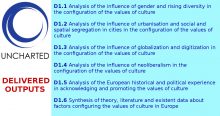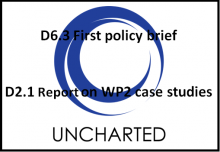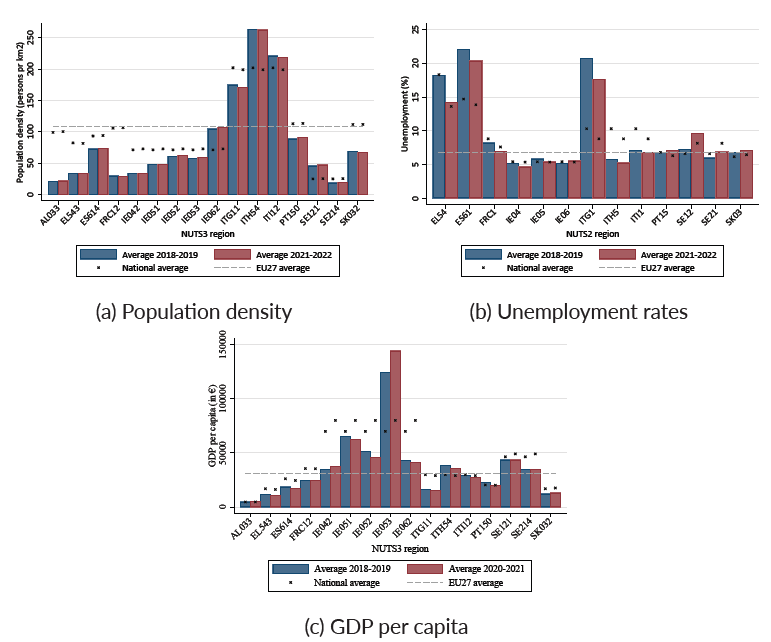 The Work Package WP2 of the UNCHARTED project aims at analyzing the emergence of values linked to culture in practical contexts and in the field of cultural policy and cultural administrations.
The Work Package WP2 of the UNCHARTED project aims at analyzing the emergence of values linked to culture in practical contexts and in the field of cultural policy and cultural administrations.
The team in charge to carry on this part of investigation has recently released 4 reports that present the results of their studies and the basis for future actions.
D2.2 Report on the emergence of values in cultural participation and engagement
This research seeks to identify the plurality of social values of culture and the tensions, conflicts, and public controversies in the “valuation” of cultural participation in live arts and culture, as articulated by the practitioners themselves. Focusing on four different fields (community-engaged artistic projects, culture and community based creative tourism, illegal musical events, remote participation in cultural activities during Covid-19) the analysis is conducted through case studies based on a mix of methods, including participatory observation, semi-structured interviews, online questionnaires, and documental review. Their comparisons provide a rich initial analysis to understand the social value(s) of culture.
D2.3 Report on the emergence of values in television and new media
This report explores the plurality of values attributed to digitally mediated cultural participation with specific attention to participation in new media forms, exploring modes of remote cultural participation that are digitally mediated through live stream and teleconferencing platforms. Four case studies of cultural participation are presented, two from the UK and two from Norway, each of which maps the values emanating from two modalities of mediated cultural participation:
- Dialogic cultural consumption: participation in fixed digital culture with interaction among participants, such as collective viewing and commenting on a cultural performance through Twitch, Facebook, Instagram TV or YouTube.
- Distributed cultural co-creation: participation in co-created digital culture, such as the coperforming of amateur musicians through video conferencing platforms, or arts-based initiatives predicated on co-production between audiences, artists, and curators.
D2.4 Report on the emergence of values in cultural production and heritage
This report explores the emergence of values linked to culture production and heritage management. Six cases of studies were identified: three related to cultural production and three to heritage management. In order to cover the greatest number of values that are put into play in such vast field, a selection of the actors and areas involved was conducted with the following criteria:
- the organisations, practices or events linked to creation and production within the art sector and the cultural and creative industries
- the areas where intrinsic values prevail (e.g. aesthetic criteria, conservation, education etc.)were identified within each artistic-cultural sector
- the areas where extrinsic values predominate (e.g. economic or social)
- areas where there is an evident tension between intrinsic and extrinsic values
- organisations, practices or artistic-cultural events, where professionals develop their cultural production.
D2.5 Mapping of the values of culture in cultural policy objectives
This section examines values in European cultural policies by addressing a set of case studies corresponding to twelve national, regional, and local administrations. The case study analysis aims to identify the plurality of values of culture and their existing tensions within EU cultural administrations.
The 12 studies include country capitals, peripheral cities and different kinds of substate national entities. This selection configures a vast plurality of value orientations and approaches to cultural policies from their socio-genesis, institutional dynamics and models standpoints.
The predetermined goals of the investigation are:
- to draw a complete picture of the European scenario of predominant values and value tensions in cultural policy administrations
- to analyse from a pragmatic perspective the tensions of value
- to identify axiological affinities among the cases which refer to certain common value principles and to elaborate a synthetic representation of the main tensions between them.




















